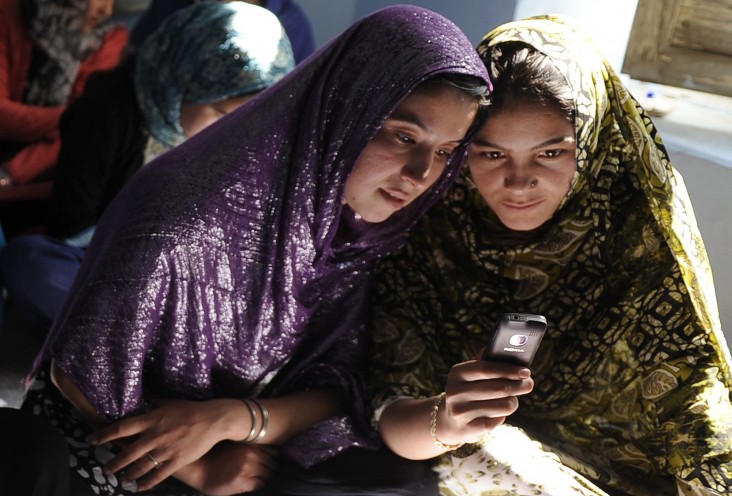- What We Do
- Agriculture and Food Security
- Democracy, Human Rights and Governance
- Economic Growth and Trade
- Education
- Ending Extreme Poverty
- Environment and Global Climate Change
- Gender Equality and Women's Empowerment
- Global Health
- Water and Sanitation
- Working in Crises and Conflict
- U.S. Global Development Lab

The Digital Opportunity
Like railways and roads before it, the internet is unleashing waves of innovation and transforming the way in which businesses, consumers, and governments operate and interact with each other. The rapid growth in mobile phone ownership and mobile broadband usage is serving only to accelerate this digital revolution.
This new found access to digital information and services is empowering individuals, opening new channels for delivering more effective and scalable services from governments and the private sector, and enabling a more adaptive, data-driven approach to decision making.
The opportunity is clear, but it is not a forgone conclusion that digital technologies will benefit those who arguably stand to gain the most.
Four billion people in developing countries still don’t have access to the internet, including a staggering 93 percent of households in the least developed countries. And women are, on average, 14 percent less likely to own mobile phones than their male counterparts.
The Lab works to improve the lives of millions of poor and vulnerable people throughout the world by supporting the development of an inclusive, responsible, and sustainable digital economy and the adoption of digital tools and data-driven approaches that improve development effectiveness.
2017 Digital Development Awards ![]() (pdf - 10 MB)
(pdf - 10 MB)
Our Approach
The Lab promotes digital development in four main ways:
Digital Inclusion
The Digital Inclusion team helps bridge the digital divide by expanding access to the internet in countries where USAID works to accelerate the Agency’s development objectives and ensuring the most marginalized have the skills and resources to be active participants in the digital economy. Through public-private partnerships and direct technical assistance the team has unlocked more than $100 million for expanded internet access, resulting in approximately 20 million new mobile and internet users worldwide, and directly supported USAID health and education programs by connecting 56 schools and 39 hospitals to the Internet since 2012. Learn more.
Digital Finance
Digital financial services offer an unprecedented opportunity to expand access to an array of affordable financial tools and services that make financial transactions cheaper, more secure and transparent, and help the poor weather financial shocks and lead more resilient lives. The Lab’s Digital Finance team acts on this digital opportunity to create inclusive, pro-poor financial sectors that serve the needs of governments, underserved populations, and industry, ultimately helping the world’s financially excluded and underserved populations access and use financial services that meet their needs. Learn more.
Advanced Geographic and Data Analytics
The Lab’s GeoCenter team applies geographic analysis to international development challenges to improve the strategic planning, design, monitoring, and evaluation of USAID’s programs. The work of the GeoCenter brings new insights to development challenges, allowing the Agency to plan interventions where development support is needed most. The GeoCenter works directly with Bureaus and Missions to integrate geographic analysis, scenario planning, and data analytics to inform development programs, and strengthen the capacity of USAID to use geospatial technology through trainings and a growing community of practice. Learn more.
Development Informatics
The Development Informatics team seeks to make development more adaptive, efficient, and responsive to citizens and decision makers by helping transform the use of data and technology throughout development. For example, the Lab is contributing to the expansion of mHero, a mobile message-based tool that allows health workers to stay in touch with health officials, improving the local health system’s ability to prevent and respond to public health threats. The team also led the public advocacy campaign for the ‘Principles for Digital Development’, a set of best practices for applying digital technology and data in development, which have been endorsed by over 60 organizations, including key USAID implementing partners, donors, and multilateral organizations. Learn more.
To learn more about our work, follow us on Twitter and sign up for our newsletter







Comment
Make a general inquiry or suggest an improvement.